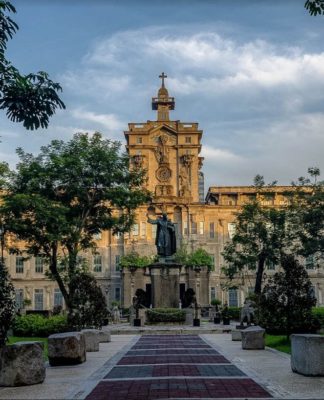THE SUPREME Court (SC) has denied the UST Faculty Union’s (USTFU) claim for P26 million in hospitalization and medical benefits from 1997 to 2003, saying the union’s complaint was too late and that it had misinterpreted its collective bargaining agreement (CBA) with the University.
The dispute was over whether UST’s annual contributions to USTFU hospitalization and medical benefits fund should be one-time or cumulative given annual increases in tuition.
In the July 30 decision written by Associate Justice Antonio Carpio, the SC said there was no “carryover” provision for the hospitalization and medical benefits fund in the 1996-2001 CBA and the 1999 memorandum of agreement on economic provisions between UST and USTFU. The carryover provision is found only in the 2001-2006 and 2006-2011 CBAs.
Moreover, the union did not complain during the span of the 1996-2001 CBA, the 1999 memorandum of agreement, and the 2001-2006 CBA.
Under the Labor Code, causes of action for unfair labor practices expire after one year, while money claims arising from employer-employee relations prescribe “within three (3) years from the time the cause of action accrued; otherwise they shall be forever barred.”
“USTFU did not file any complaint within the respective one-year prescriptive periods. USTFU decided to file its complaint only in 2007, several years after the accrual of its several possible causes of action. Even if USTFU filed its complaint under the theory of money claims from employer-employee relations, its cause of action still has prescribed,” Carpio said in the 28-page decision.
The ruling upheld the July 2012 decision of the Court of Appeals that the labor arbiter and the National Labor Relations Commission—which had ruled in favor of USTFU in 2010 and 2011, respectively—had no jurisdiction because the case was about “differing interpretations” of CBA provisions and not unfair labor practice. The Supreme Court said USTFU should have resorted to voluntary arbitration, which is the mechanism to resolve grievances over interpretations of CBA provisions. Whichever way the case is viewed, USTFU no longer has a claim, Carpio said.
Union interpretation
According to the union’s interpretation of the 1996-2001 CBA, UST’s contributions should be given annually on top of new contributions because economic benefits like hospitalization and medical benefits fund are sourced from annual tuition increases.
USTFU sought a total of P105 million for hospitalization and medical benefits fund for academic years 1996-1997 until 2010-2011. The University, it claimed, had a P26-million balance after remitting P79 million.
USTFU claimed that the University was supposed to pay P2 million not only in the first year of the 1996-2001 CBA but also in the subsequent years, along with an additional P1 million for every year and P4 million for the fourth and fifth years of the CBA due to a memorandum of agreement on economic provisions in 1999.
UST remitted P2 million during the first year of the 1996-2001 CBA, P1 million in the second year, P1 million in the third year, and P4 million in the fourth year. The University also provided a total of P31 million under the 2001-2006 CBA and P40 million under the 2006-2011 CBA.
The University, court records showed, said it “religiously complied with the economic provisions of the 1996-2001 CBA particularly its obligation to remit to the hospitalization and medical benefits fund as [well as] the renegotiated economic provisions under the 1999 memorandum of agreement on economic provisions by remitting the total amount of P8 million,” adding that there was no agreement for a carry-over provision.
Lawyer Ian de Leon, who is an associate of UST’s legal counsel Divina Law Office, said the high tribunal essentially ruled that the University faithfully followed the clear provisions of its agreements with the USTFU and remitted the correct amounts to the hospitalization and medical benefits fund.
“The University and the Union have been working hard to establish a foundation of partnership between them. This being said, it is not uncommon for parties to a contract to have disagreements on interpretation of certain provisions thereof,” de Leon said in an email sent to the Varsitarian.
The Varsitarian asked USTFU President George Lim for comment, but he is yet to respond.















